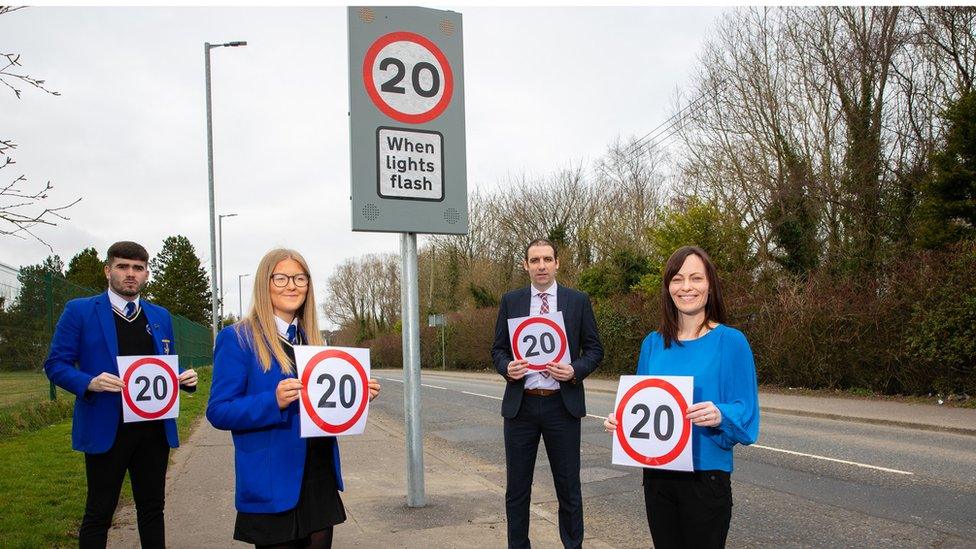20mph speed limit announcement welcomed by campaigners
- Published
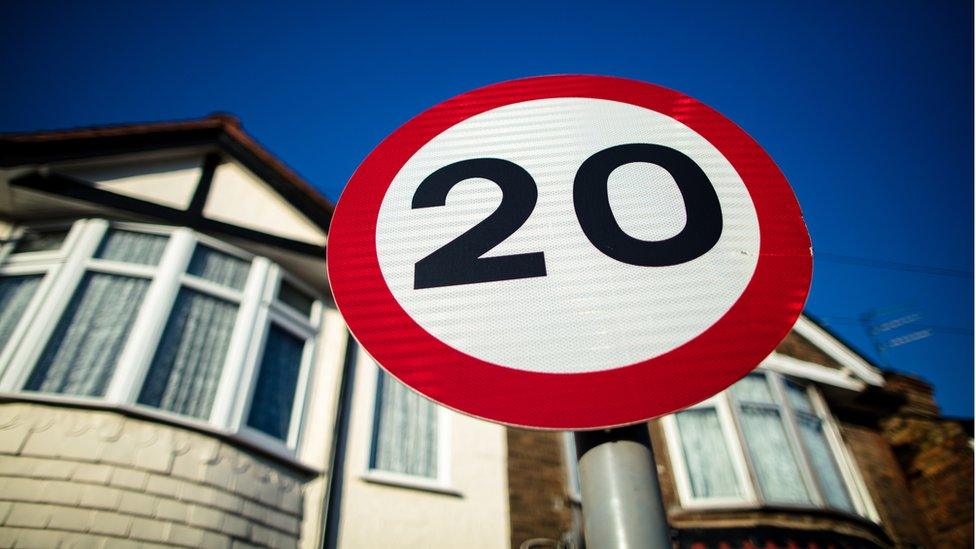
The legislation will also make parking on pavements illegal in most cases
Campaigners have welcomed news that 20mph (32km/h) speed limits in residential areas in Wales are to become law within a year.
Welsh government Consul General Mick Antoniw said the plans, first backed by the Senedd last year, were proceeding.
Pilots of the speed limit will run in eight areas of Wales this summer.
The legislation will also make parking on pavements illegal in most cases, to improve access for wheelchair users and people pushing prams.
The pilots will examine different approaches to bringing in the zones, including how best to enforce the limits.
Two pilots have already started in St Dogmaels, Pembrokeshire, and St Brides Major in the Vale of Glamorgan.
Fiona Andrews, a member of the group campaigning for the speed limit in St Dogmaels, said their trial started three weeks ago.

Fiona Andrews accepted it could take time for all parts of Wales to adapt
The 62-year-old backed 20mph limits becoming law across Wales but accepted it could take time for the nation to adapt.
"There is a recognition that we are human and people who have been driving for years need a bit of time to change the speed.
"I have seen a lot of people braking to slow down. There are definitely still people going above 20mph, but people are saying to me there has been a real shift already."
Christine Boston, director of walking and cycling charity Sustrans Cymru, said: "The majority of pedestrian casualties we know occur in built-up areas and particularly affect older people, children and people with disabilities.
"Ultimately, 20mph limits save lives. They are proven to reduce casualties and fatalities so we welcome this news.
"I think we need to look at the transport system as a public health issue and look at prevention rather than dealing with its impact."
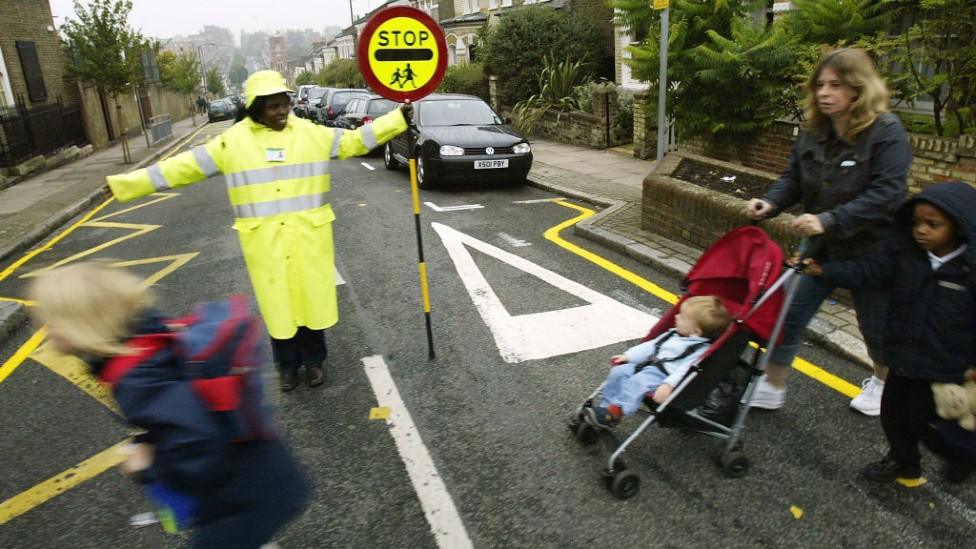
Slower traffic encourages more active travel, research suggests
She said 20mph zones were better for everyone long-term, not just through accident prevention but also reduced pollution.
"When we are behind the wheel of a car we all feel like we're in a rush, but it's right we make roads safe for everyone," she said.
"We're not in so much of a rush we can't make sure everybody is safe."
Teresa Ciano, partnership manager at Go Safe, the safer roads collective formed by the Welsh police forces, local authorities and the Welsh government, said: "We really welcome it coming in.
"The more clear we can be to the public [on road speed], the better."
She said while the default would switch to 20mph in residential areas, local councils would still retain the right to designate some roads as 30mph (48km/h) if there was a case for it.
But the Alliance of British Drivers said it had been opposed to 20mph speed limits "from the word go".
Director Ian Taylor said: "We do not believe one-size fits all, we believe the limit should fit the road."
Introducing a blanket ban was "asking for non-compliance", he added. "It would, you could say, take lots of perfectly normal and perfectly safe... drivers and potentially criminalise them."
Mr Taylor said people should concentrate on "having their eyes on the road rather than their speedo". He emphasised the Alliance did not advocate drivers breaking the law.
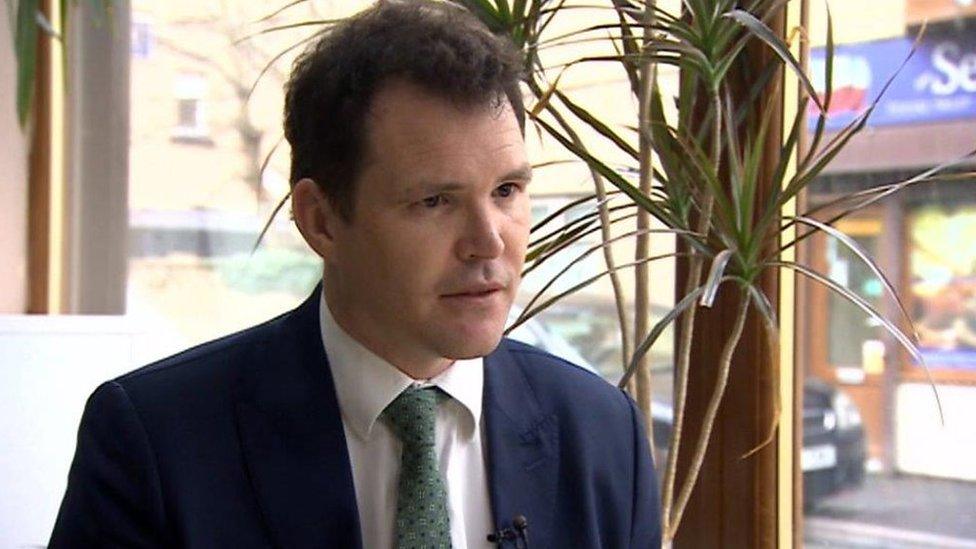
Lee Waters says the new law will "save lives and it will improve the quality of people's lives"
Pedestrians are five times more likely to survive being hit by a car at 20mph than at 30mph, according to Lee Waters, Wales' deputy climate change minister.
"This will save lives and it will improve the quality of people's lives locally," he said.
And he told BBC Radio Wales' Jason Mohammad programme levels of cycling, walking and friendliness - stopping and talking to neighbours - had all been shown to rise when traffic speeds were lowered.
However, he acknowledged: "You're not going to flick a switch and suddenly people's behaviour changes.
"This is going to be a process of change, just like we've done with seatbelts, and smoking in restaurants and recycling."
- Published30 June 2021
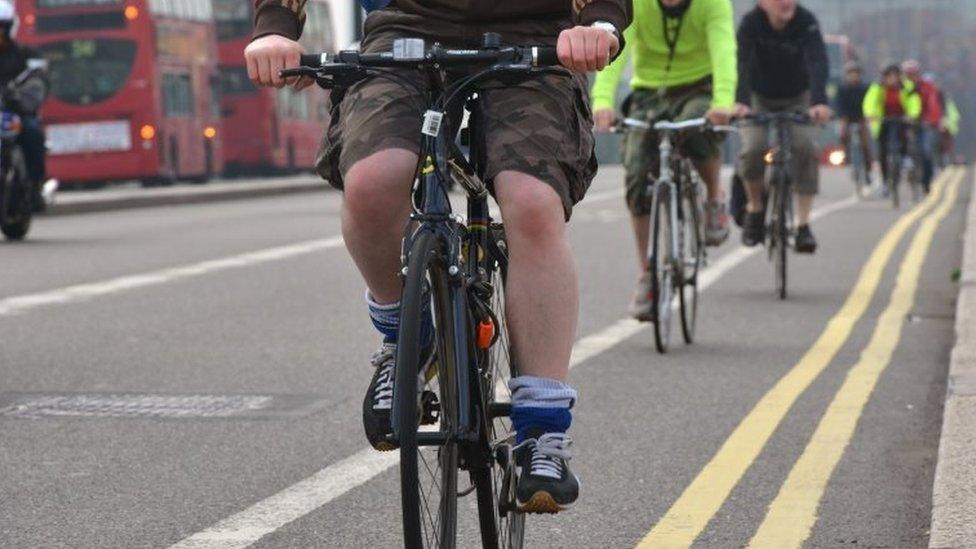
- Published15 July 2020
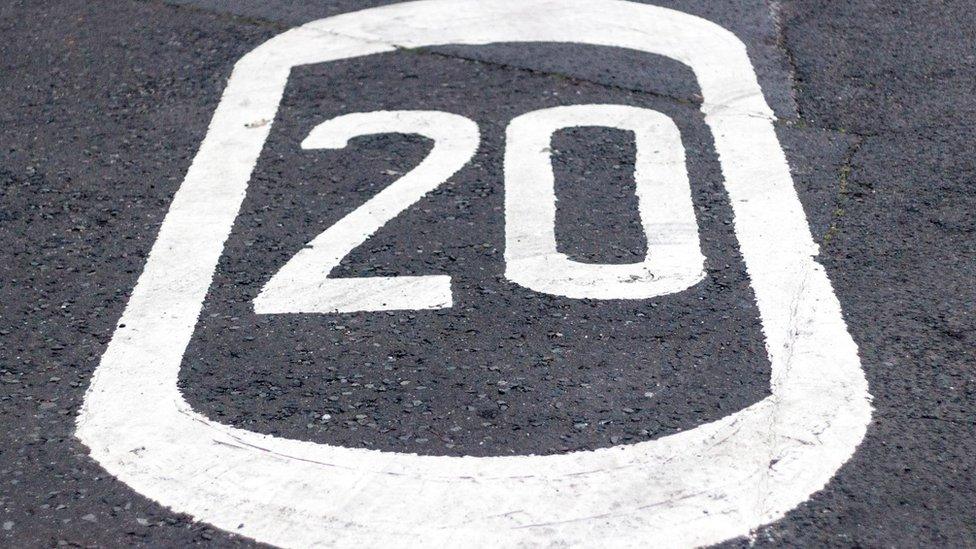
- Published17 February 2021
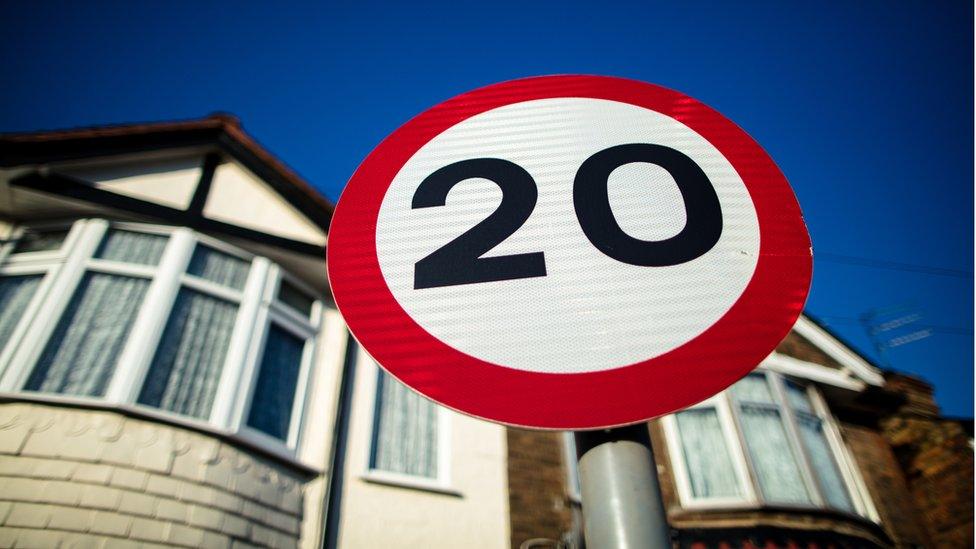
- Published22 March 2021
